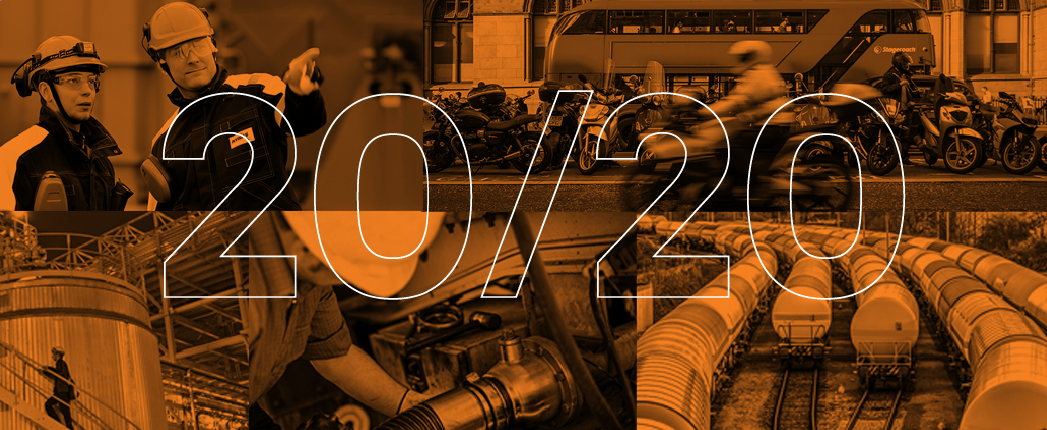
For the lubricants industry in Europe, the Middle East and Africa, 2020 was dominated by the impacts of the COVID-19 pandemic while also seeing many other important developments – from new environmental regulations and a controversial quota system to a long list of mergers and capital projects.
The year began with some all-too-common disruptions in the base oil market and implementation of two much anticipated regulations. Iranian base oil producers, traditionally significant exporters to the Middle East Gulf and South Asia, were still being hampered by sanctions imposed by the United States in 2018. Looking for new ways to stay in business they found alternative export routes.
Tensions in the region were further ratcheted by the U.S.’s Jan. 3 killing Iranian Major General Qasem Soleimani, commander of the Islamic Revolutionary Guard’s Quds Force.
Meanwhile the global shipping industry – along with lubricant suppliers that serve it – were adapting to IMO 2020, which took effect at the start of the year. The regulations lowered the cap on sulfur content in marine fuels from 3.5% to 0.5% by weight.
The start of 2020 also marked implementation of a quota that the European Union adopted on API Group II base oil from the United States. The measure – which imposed a tax on volumes imported after the first 200,000 metric tons every six months – drew significant criticism from the base oil and lubes industry.
All of these development brought some degree of disruption to the industry, but nothing like the disturbance caused by the COVID-19 pandemic. Beginning in January, trade with China was disrupted as governments imposed restrictions aimed at containing the disease. In subsequent months, many types of commerce and movement were restricted, and demand for finished lubricants and base oils suffered.
Analysts and industry sources predicted that demand would probably decrease by double-digit percentages in 2020 and that it may take more than a year to return to pre-pandemic levels – and that in some markets that might never happen.
Those predictions turned out to be accurate as witnessed in numerous corners of the industry for which statistics and estimates were available.
While the pandemic was in full swung in March and April, numerous lube plants altered operations to produce hand sanitizers.
The year yielded a large crop of mergers and acquisitions – perhaps partly because of the struggles encountered by many businesses. Kluber Lubrication acquired wire drawing lubricant maker Traxit International. GP Global acquired the lubricants assets of Lagos, Nigeria-based Grand Petroleum. GP Global later sought new investors to help weather the financial crisis caused by the pandemic and related economic contraction.
Naphthenic base oil producer Nynas AB was forced to file for protection from creditors in late 2019 because of problems not related to the pandemic. By the end of the year the company had restructured and exited from court protection with much less debt, new owners and the ability to process feedstock other than the Venezuelan crude that exposed it to United States sanctions.In July, the European Commission granted conditional approval for the merger of PKN Orlen and Lotos, Poland’s two main oil companies and lubricant suppliers.
At the end of September, Total acquired Lubrilog SAS, to strengthen its presence in the industrial lubricants market. In October Condat acquired the Italian firm Kemno, a specialty products maker, and Fuchs acquired Italian lubricant distributor Welponer SpA the following month
Companies in the industry also continued moving forward with capital projects. Lubricants and Petroleum Corp. opened a grease plant at its blending facility in Aspropyrgos, Greece, while Tatneft in Russia strengthened its market position with a new lubricant blending plant at its Taneco Group III base oil refinery in Niznekamsk. Gazprom Neft modernized an obsolete blending plant in Novi Sad, Serbia.
India-based Siddharth Grease & Lubes Pvt.’s subsidiary opened a lubricant and grease manufacturing plant in the United Arab Emirates, to supply markets from North Africa to the Central Asia.
Joint venture Avista Green announced in August its new base oil rerefinery in Kalundborg, Denmark was operational. The facility replaced an Avista rerefinery that halted production in July 2017 following a fire. Portuguese energy company Galp announced its plan to close its refinery in Matosinhos in 2021, alongside its 150,000 t/y Group I base oil plant.